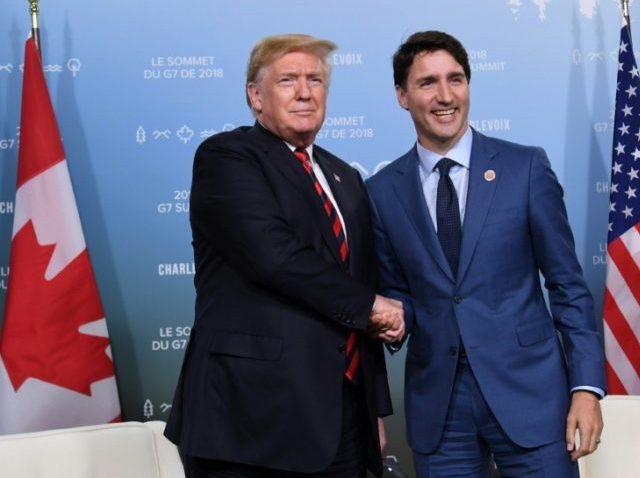The imposition of tariffs on autos imported into the U.S. would cause the Canadian economy to stagnate, perhaps extinguishing one in five Ontario manufacturing jobs, according to a new analysis by TD Economics.
Economic growth would be cut by half of a percentage point in 2019 if the U.S. slaps tariffs on auto imports, Brian DePratto, Senior Economist at TD Economics, wrote in a report published Monday. The Canadian economy’s growth would come to a standstill for two quarters, according to DePratto. One in ten manufacturing jobs would be at risk.
The most severe impact would be on the province of Ontario, where the Canadian auto sector is concentrated. Economic growth there would drop by two percentage points and one in five manufacturing jobs would be at risk.
Worst of all, the level of business investment drops and is permanently lower as a result, according to DePratto. This would lower Canada’s long-term economic capacity.
“The magnitude of this scenario underscores the high stakes facing Canadian trade negotiators,” DePratto writes.
President Donald Trump in May ordered the U.S. Department of Commerce to launch a ‘Section 232’ investigation of whether auto imports pose a threat to national security. Last year’s Section 232 investigation of steel and aluminum imports led the administration to impose tariffs on those metals. Canada and other U.S. trading partners have been complaining loudly about those tariffs.
Canada and Mexico are still negotiating with U.S. officials over proposed changes to the North American Free Trade Agreement. Those negotiations, however, have reportedly stalled as both Canada and Mexico have dug in against changes the U.S. has advocated, such as a five-year sunset to the trade agreement and stricter rules on the percent of foreign parts that an automobile can have to qualify for tariff exemptions. President Trump has repeatedly said he will cancel Nafta if the negotiations fails.
DePratto said Canada’s currency would also take a hit, dropping between eight percent and 15 percent.
Although the scenario is bleak for Canada, DePratto says his analysis may turn out to be too optimistic if the U.S. goes ahead with tariffs.
“This scenario may paint a fairly negative picture, but if anything, the risks are tilted further to the downside,” he wrote.
DePratto holds out hope, however, that the Nafta negotiations will be resolved without resorting to a full-blown trade war. President Trump has recently said that he would be happy to engage in bilateral negotiations with Canada and Mexico if the three-party negotiations fail. That could result in an exemption for Canada from any auto tariffs the U.S. might impose.

COMMENTS
Please let us know if you're having issues with commenting.